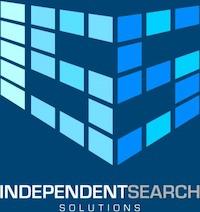The Comprehensive Guide to Interview Preparation Research
Preparing for a job interview can be a daunting process, but with thorough research and the right strategies, you can present yourself as the best candidate for the job. This guide outlines the essential steps for effective interview preparation research, helping you to stand out and succeed in your interviews.
- Understand the Company
- Company Website:
Begin with the company’s official website. Pay close attention to their mission statement, values, and culture. Review their products or services, recent news, and any other pertinent information. This helps you understand what the company stands for and how you can align your answers with their core values.
- Financial Reports and Business News:
If you’re interviewing with a public company, read their annual reports and financial statements. Websites like Yahoo Finance or Google Finance can provide valuable insights into the company’s performance and future outlook. Stay updated with the latest news articles and press releases about the company.
- Social Media:
Follow the company on social media platforms like LinkedIn, Twitter, and Facebook. This can provide real-time updates and insights into the company’s activities, culture, and public interactions.
- Know the Job Description
- Analyse the Job Posting:
Thoroughly review the job posting to understand the key responsibilities and required qualifications. Make a list of the skills and experiences the employer is looking for, and think about how your background aligns with these requirements.
- Talk to Current or Former Employees:
If possible, connect with current or former employees on LinkedIn. Ask them about their experience with the company and any insights they might have regarding the role you are applying for. This can provide a real-world perspective that goes beyond the job description.
- Research the Interviewers
- LinkedIn Profiles:
If you know the names of your interviewers, look them up on LinkedIn. Understanding their professional background and current role can help you tailor your responses and build rapport during the interview.
- Professional Publications and Presentations:
Search for any articles, presentations, or papers the interviewers might have published. This can give you an idea of their expertise and interests, which can be useful for tailoring your questions and conversation topics.
- Industry Trends and Competitors
- Industry Reports:
Read up on the latest industry reports and trends. Understanding the broader industry context can help you speak more intelligently about how the company fits into the market and the challenges and opportunities it might face.
- Competitor Analysis:
Identify the company’s main competitors and understand their positioning. Being knowledgeable about the competitive landscape can impress interviewers and demonstrate your commitment to understanding the industry.
- Practice Common Interview Questions
- Behavioural Questions:
Prepare for common behavioural interview questions like “Tell me about a time when you faced a challenge at work” or “How do you handle stress?” Use the STAR method (Situation, Task, Action, Result) to structure your responses with clear, concise examples from your past experiences.
- Technical Questions:
If you’re applying for a technical role, practice common technical interview questions and problems. Websites like LeetCode, HackerRank, or industry-specific forums can provide valuable practice resources.
- Mock Interviews:
Conduct mock interviews with a friend or mentor. This can help you practice your responses and get feedback on your performance. Recording these sessions and reviewing them can also help identify areas for improvement.
- Prepare Your Questions
- Questions for the Interviewer:
Prepare thoughtful questions for your interviewers. This demonstrates your genuine interest in the role and the company. Questions might include inquiries about team dynamics, company culture, career development opportunities, and specific challenges the team is currently facing.
- Logistics and Final Preparations
- Plan Your Journey:
If your interview is in person, plan your route and allow extra time for unexpected delays. Knowing exactly how to get there can reduce stress on the day of the interview.
- Dress Appropriately:
Choose professional attire that matches the company’s dress code. When in doubt, err on the side of being slightly more formal.
- Bring Necessary Materials:
Bring multiple copies of your resume, a list of references, a notepad, and a pen. Being prepared with these materials can make a good impression and keep you organized.
Conclusion
Effective interview preparation research involves a multifaceted approach that encompasses understanding the company, the role, and the industry, as well as practicing your responses and preparing thoughtful questions. By investing time in comprehensive preparation, you can increase your confidence, demonstrate your qualifications, and significantly improve your chances of securing the job.
Good luck with your interview preparation!







